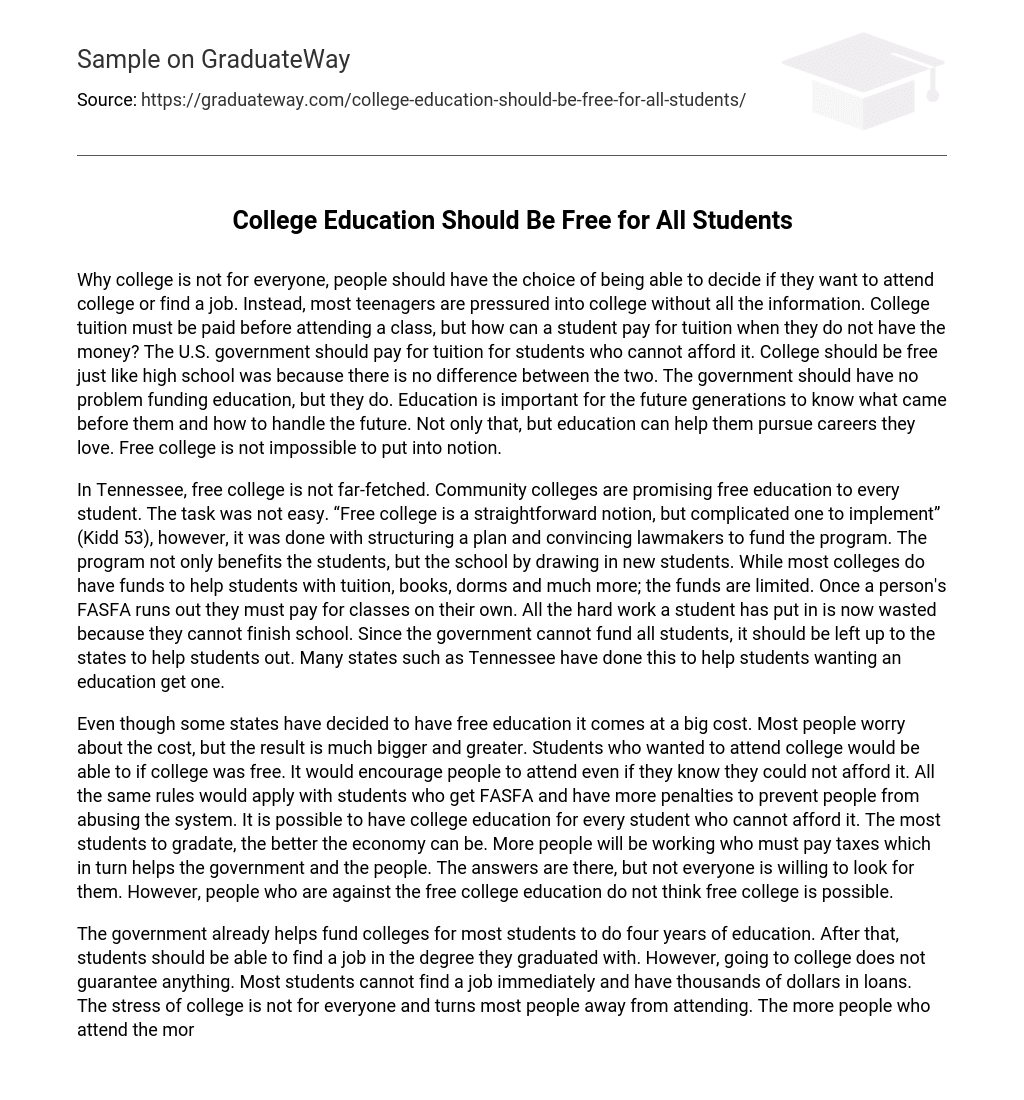The decision to attend college or enter the workforce should be left up to individuals, as not everyone may benefit from a college education. Unfortunately, many teenagers feel obligated to go to college without having all the necessary information.
College requires upfront payment of tuition fees, but what if students cannot afford it? It is crucial for the U.S. government to support students by covering their tuition costs if they are unable to pay.
College should be offered free of charge, similar to high school, as both paths of education are equally valuable.
Despite the government’s reservations about funding education, it should prioritize it because learning from the past and navigating the future successfully is vital for future generations. Additionally, education empowers individuals to pursue their passions and find fulfilling careers. Therefore, implementing free college education is a feasible proposition.
The idea of free college becoming a reality in Tennessee is due to community colleges offering free education to all students. Implementing this program required careful planning and convincing lawmakers to allocate funds (Kidd 53). However, Tennessee successfully structured a plan and secured funding for this complex initiative, which not only benefits the students but also attracts new students to the schools. While financial aid provided by many colleges covers tuition, books, and housing, there are limitations to these funds. Once a student’s FASFA aid is used up, they must bear the financial burden of classes alone. It is unfortunate that lack of funds may hinder students from completing their education. Since the government cannot financially support all students, each state has taken on the responsibility of extending assistance. Recognizing this need, states like Tennessee have made efforts to support students in their educational pursuits.
Despite the significant cost, there are states that provide free education, although this is a major concern for many. However, the advantages of free college education have wide-ranging effects. It would eliminate financial barriers and serve as an incentive for students to pursue higher education regardless of their financial circumstances. The same regulations and penalties to prevent exploitation by FASFA recipients would still apply. Ensuring access to college education for all needy students is feasible and could bolster our economy. Both the government and the people would benefit from increased employment and tax contributions from more graduates. Unfortunately, opponents argue that achieving free college education is unrealistic.
Even though the government provides financial aid for a four-year college education, graduating does not ensure employment or freedom from student loan debt. The difficulties and costs associated with college can dissuade potential students, resulting in higher enrollment and the requirement for more funding or waitlists at public schools. While free tuition could ease some of the pressure, it also has notable disadvantages. Nevertheless, the aspiration to attend college outweighs any drawbacks.
Despite the stress of college, many students are willing to endure it in order to pursue their passion. However, there are advantages and disadvantages to providing free college education. Nonetheless, the well-being of students should be prioritized as young individuals face increasing debt due to rising college costs. It is crucial to emphasize financial education in college because students often rely on loans and enter adulthood burdened with debt instead of being equipped with knowledge about life and history.
Although free education may not truly be without cost, it represents a step towards acknowledging the importance of education in the United States. Therefore, despite appearing impossible, this concept should be implemented and put into action.





